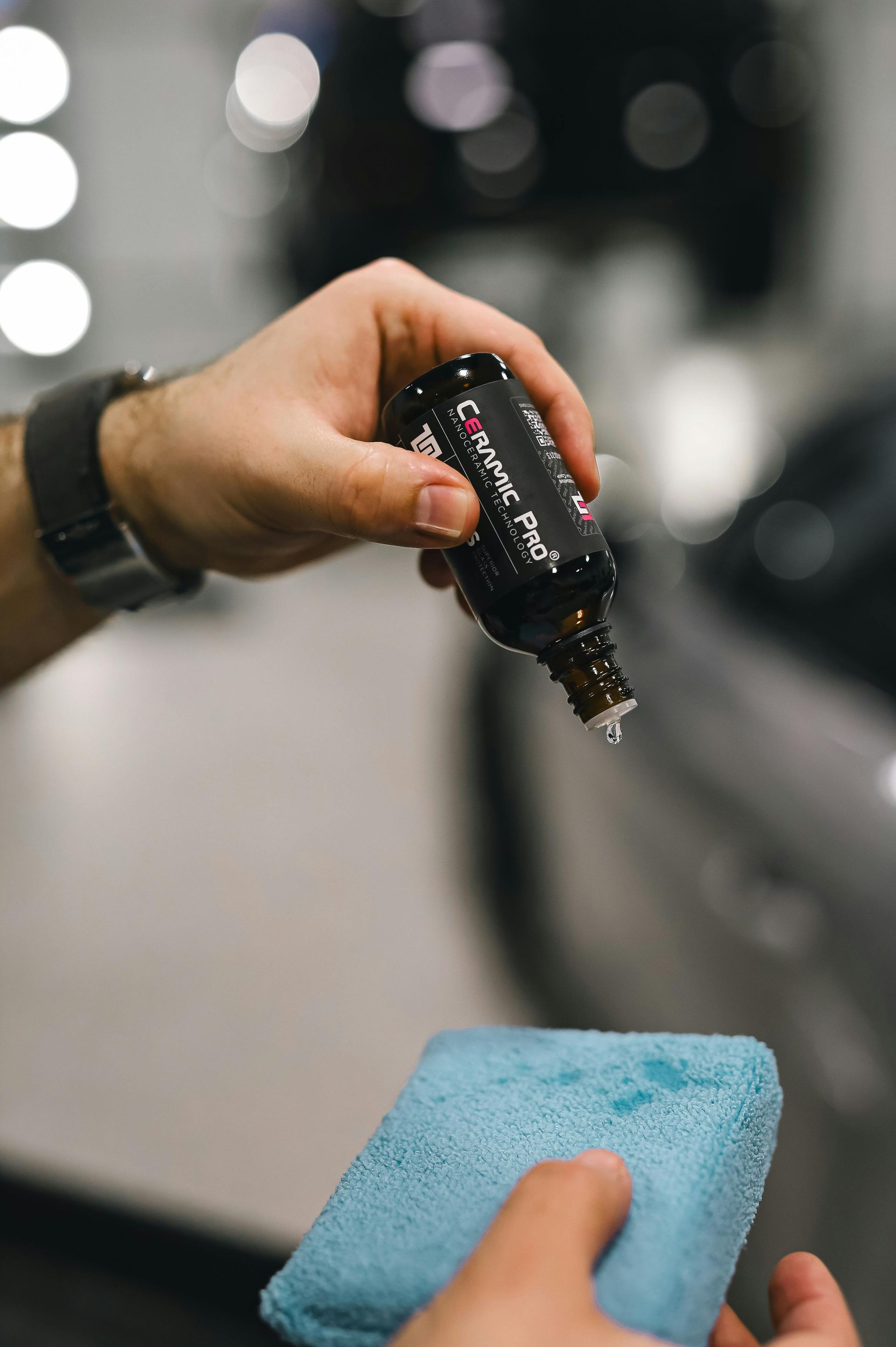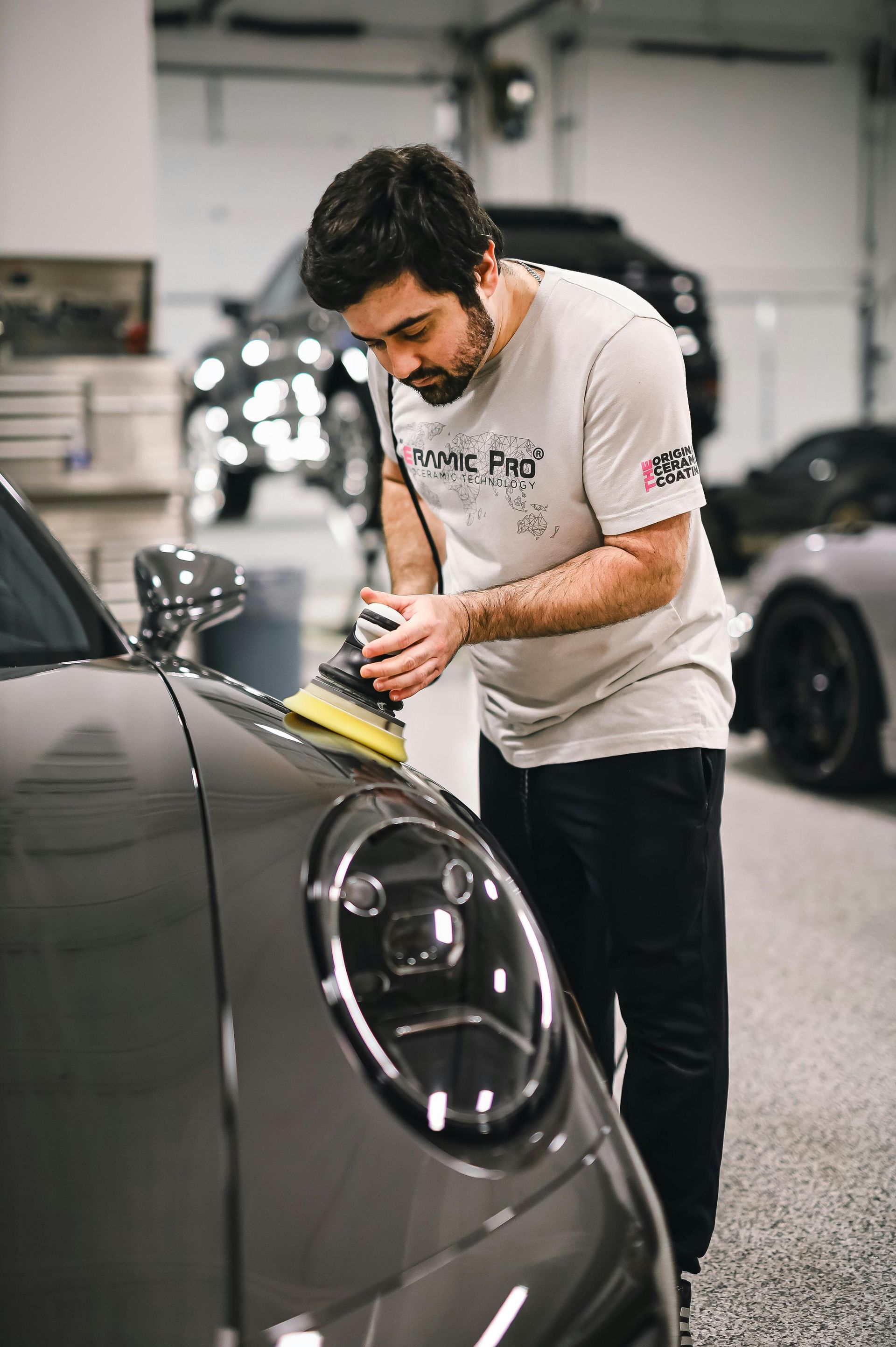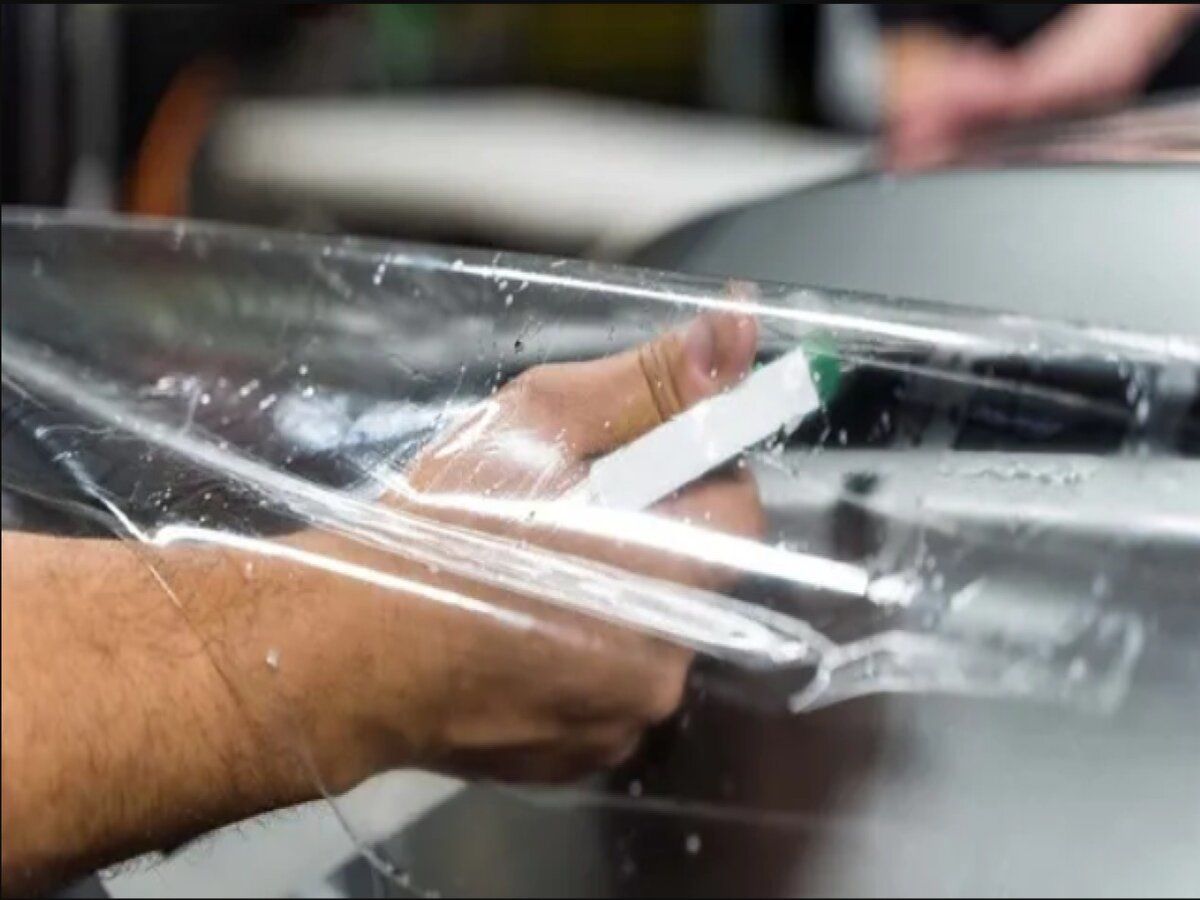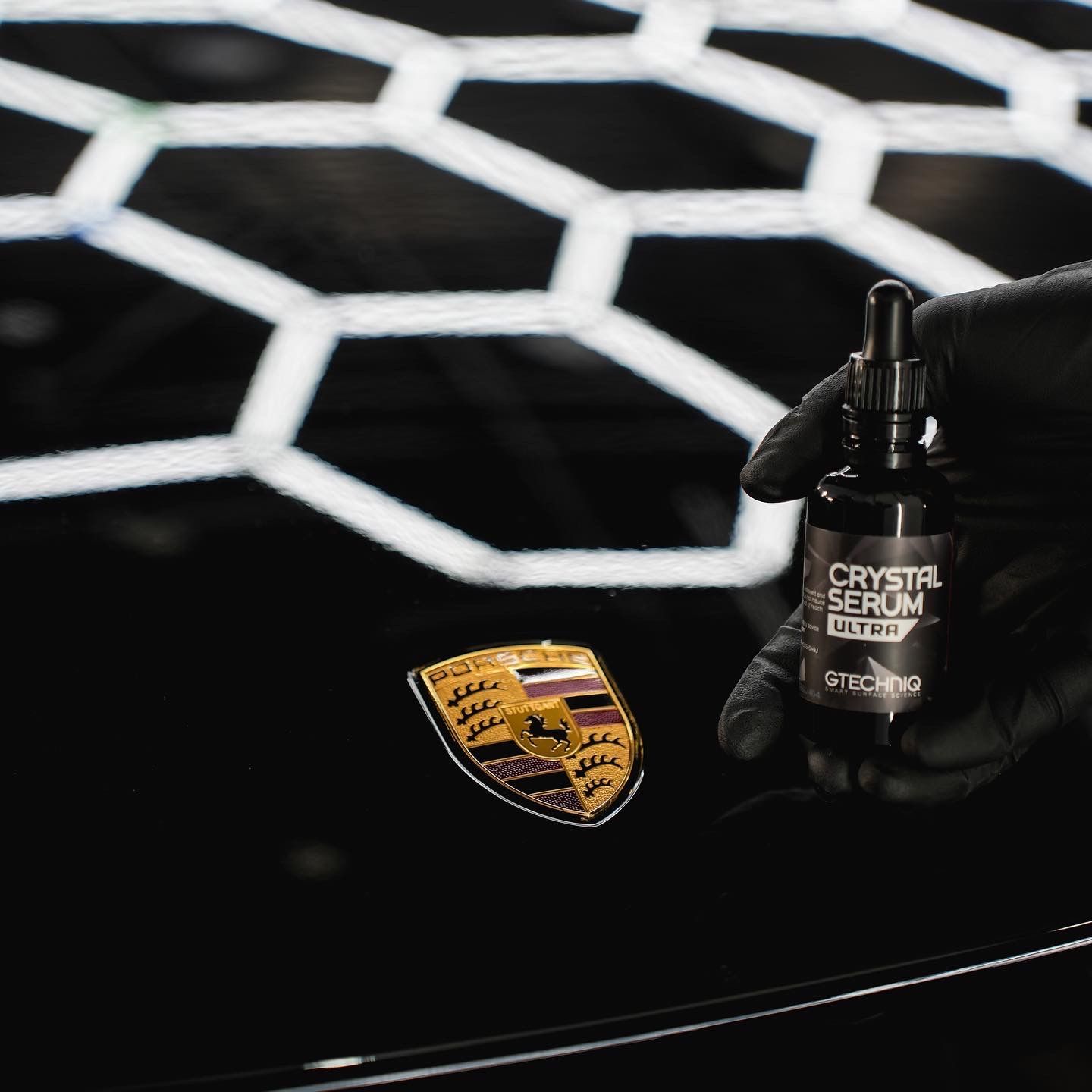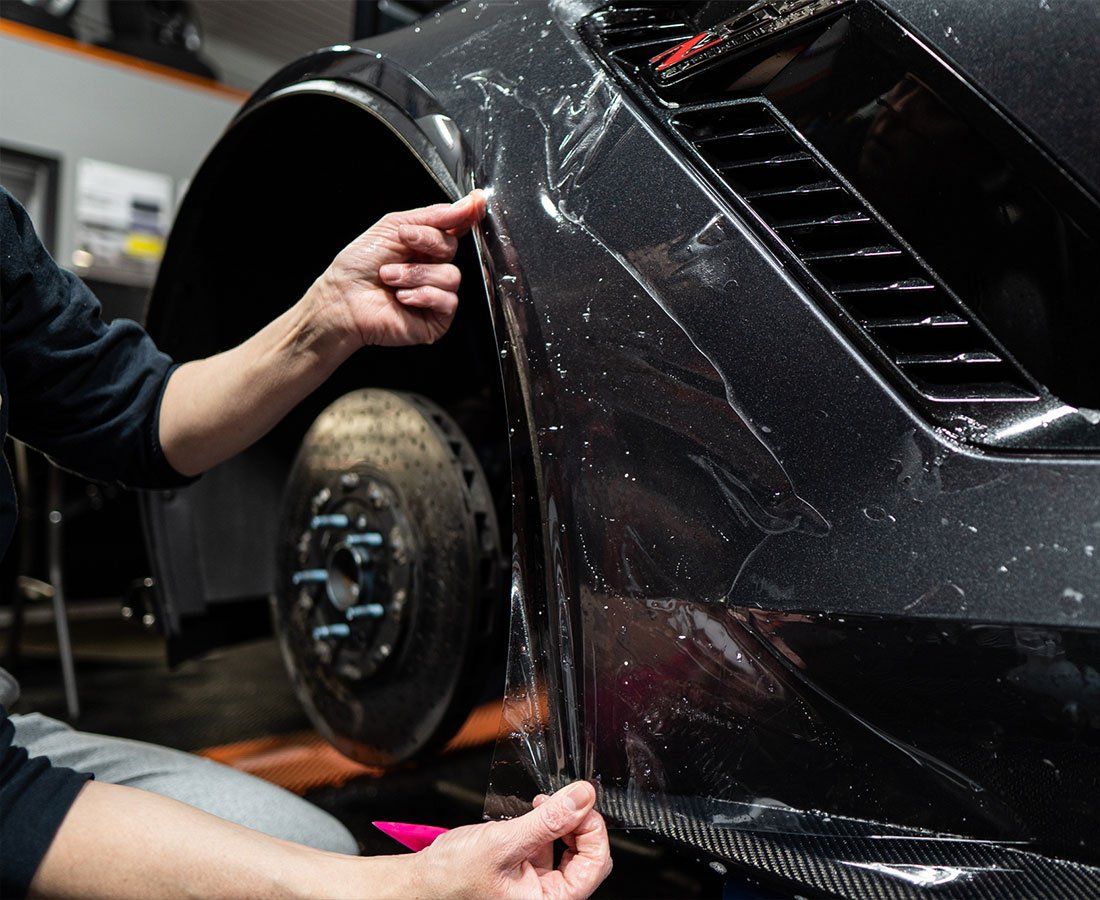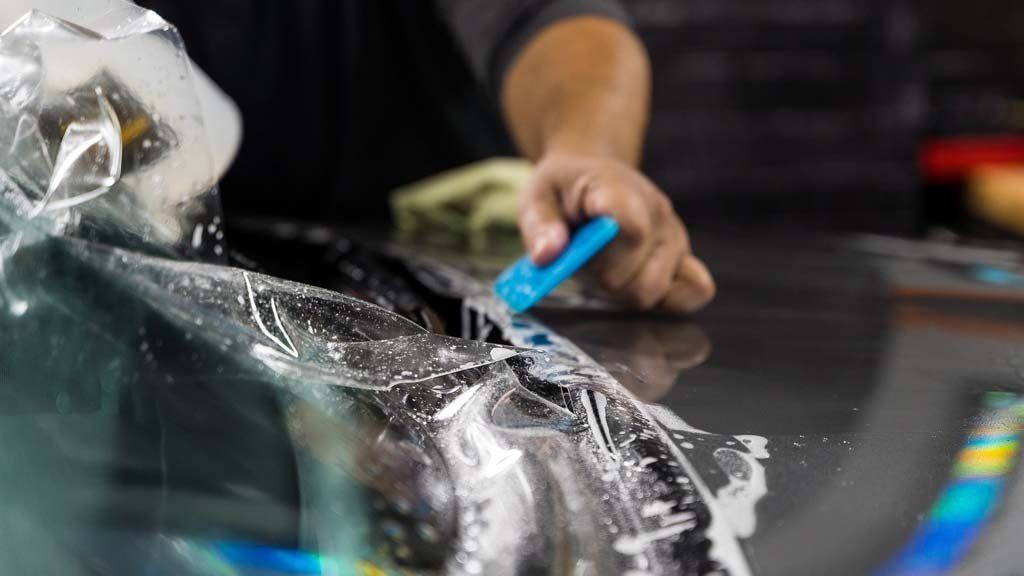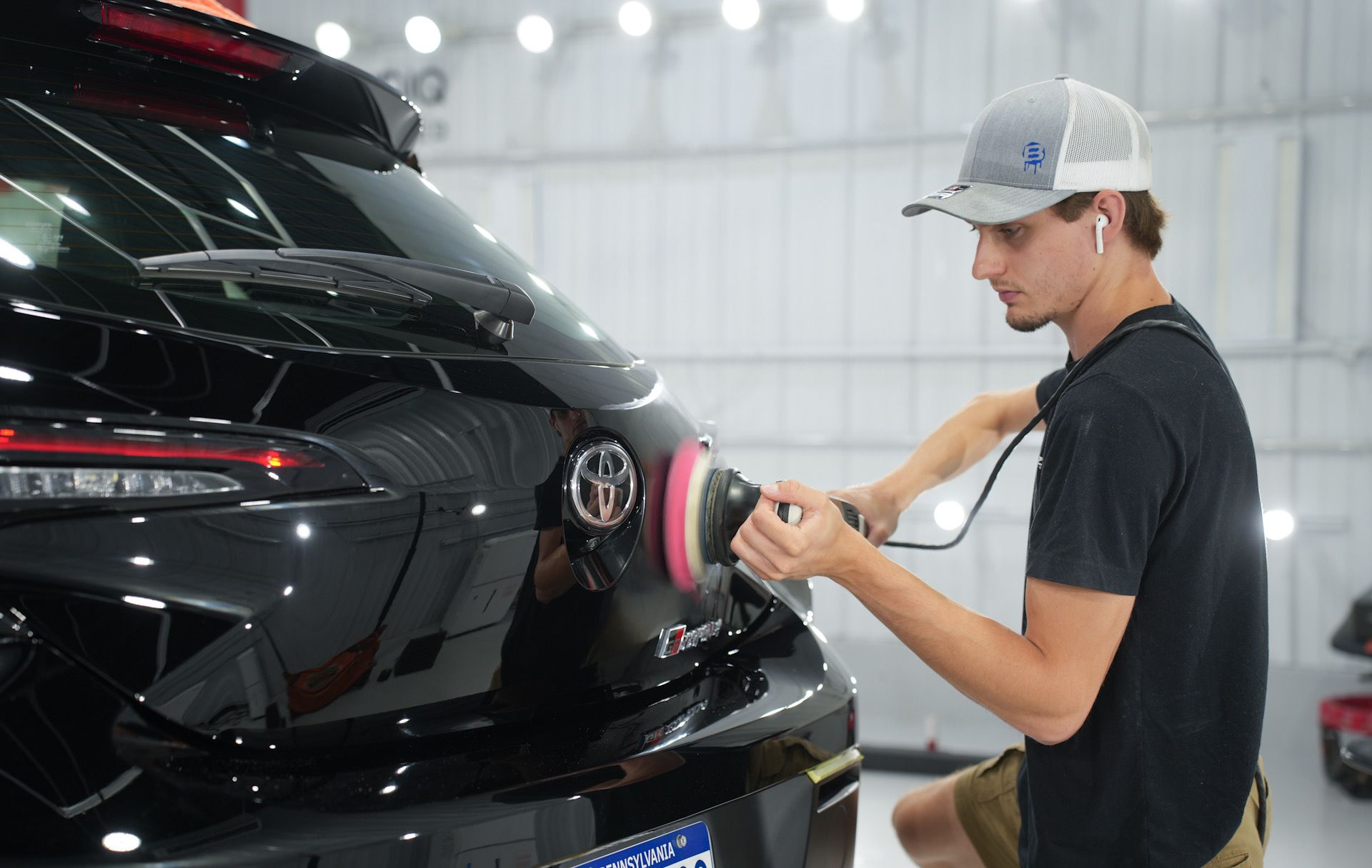How to Maintain STEK Paint Protection Film for Maximum Longevity
GET A QUOTE (484) 866-3022You just invested serious money in STEK paint protection film for your vehicle. The installation looks incredible, and you're ready to enjoy years of worry-free protection. But here's what most people don't realize—how you maintain that film directly determines whether it lasts its full lifespan or fails prematurely.
STEK PPF maintenance isn't complicated, but it does require following specific protocols that differ from regular car care. The wrong products or improper washing techniques can compromise your film's performance faster than you'd think.
Here's the reality: STEK paint protection film is engineered to handle serious abuse and maintain its properties for years. But even the best film technology can't overcome poor maintenance practices. Using automatic car washes, harsh chemicals, or abrasive techniques will damage your film regardless of its quality.
The good news? Proper STEK PPF maintenance is straightforward once you understand the basics. Follow the right protocols, avoid common mistakes, and your film will maintain its clarity and protective performance throughout its entire lifespan.
Basic Cleaning Protocols for STEK PPF
Proper washing technique forms the foundation of STEK PPF maintenance. Unlike regular paint, PPF requires specific approaches that prevent damage while maintaining optimal appearance.
Start with the two-bucket wash method using pH-neutral car shampoo. One bucket holds a clean wash solution; the other contains rinse water for your wash mitt. This prevents contamination from being dragged back onto the film surface.
Pre-rinse your vehicle thoroughly to remove loose dirt and debris before any contact washing begins. High-pressure water works well here, but maintains a safe distance to avoid film edge lifting.
Use soft microfiber wash mitts designed for PPF and delicate surfaces. Avoid brushes, sponges, or anything abrasive that could scratch the film surface. Work from top to bottom in straight lines rather than circular motions.
Rinse thoroughly between panels to prevent soap residue from drying on the film. Dried soap can leave marks and interfere with the film's hydrophobic properties.
Dry your vehicle using clean, plush microfiber drying towels. Pat or blot the surface rather than dragging towels across the film. This prevents minor scratches and maintains smooth surface texture.
Never use automatic car washes with rotating brushes. These facilities use harsh chemicals and abrasive equipment that can damage PPF edges and reduce film longevity. Touchless car washes are acceptable if necessary but hand washing remains the preferred method.

Maintenance Schedule and Timeline
Following a regular maintenance schedule ensures your STEK PPF stays on track and problems get addressed before they become serious issues.
Weekly maintenance includes basic washing to remove road grime, bird droppings, tree sap, and other contaminants. Don't let these substances sit on your film—they can etch or stain if left too long.
Monthly maintenance involves more thorough inspection and cleaning. Check film edges for any lifting or contamination buildup. Inspect for scratches or areas where the self-healing properties might need activation.
Quarterly maintenance should include professional inspection if possible. Beadz Auto Detailing offers inspection services that identify potential issues before they require major correction.
Annual maintenance represents your comprehensive checkup. Professional detailers can address any developing problems, perform deep cleaning if needed, and verify that your film continues performing as expected.
Watch for immediate attention triggers between regular intervals. Bug splatter, bird droppings, tree sap, and tar should be removed as soon as possible using appropriate cleaning products.
Product Recommendations and What to Avoid
Choosing the right products for STEK PPF maintenance protects your investment and maintains optimal film performance.
Recommended products:
- pH-neutral car shampoos without wax or gloss enhancers
- Microfiber wash mitts and drying towels specifically for PPF
- PPF-safe detail sprays for quick cleaning between washes
- Dedicated bug and tar removers formulated for film surfaces
- Isopropyl alcohol diluted properly for stubborn contamination
Products to avoid:
- Automatic car wash chemicals and harsh detergents
- Products containing petroleum distillates or solvents
- Abrasive compounds, polishes, or rubbing compounds
- Wax products not specifically approved for PPF use
- Vinyl or tire dressings that can stain film edges
When in doubt about product compatibility, test in an inconspicuous area first or consult with STEK PPF professionals who understand proper film care protocols.
Water quality matters too. Hard water can leave mineral deposits on your film that create spotting and reduce clarity. Use filtered water for final rinses when possible, or dry thoroughly before water spots form.
Troubleshooting Common PPF Issues
Even with proper STEK PPF maintenance, you might encounter issues that require specific attention. Knowing how to address these problems prevents minor issues from becoming major headaches.
Surface scratches and swirl marks can often be resolved using the film's self-healing properties. Pour warm water over affected areas or park in direct sunlight to activate the healing process. Most minor scratches disappear within minutes to hours.
Staining from contaminants requires prompt attention. Use appropriate cleaning products and techniques for the specific stain type. Bug splatter, tree sap, and bird droppings each respond to different approaches.
Edge lifting should be addressed by professionals immediately. Don't attempt DIY fixes that could make the problem worse. Paint protection film in Bethlehem PA, services can properly reseal or repair lifting edges before they fail completely.
Water spotting from hard water or mineral deposits can be removed using diluted isopropyl alcohol and microfiber towels. Work gently and rinse thoroughly after cleaning.
Decreased hydrophobic performance might indicate contamination buildup on the film surface. Deep cleaning with appropriate products usually restores water beading and sheeting characteristics.
If self-healing properties seem diminished or the film appears cloudy, professional inspection can determine whether the issue is contamination, damage, or normal aging.

Long-Term Care Best Practices
Maintaining your STEK PPF maintenance routine over the years requires consistent habits and awareness of factors that affect film longevity.
Park in covered or shaded areas when possible. While STEK film includes UV protection, minimizing direct sun exposure when practical extends film life and maintains clarity.
Address contamination immediately rather than letting it sit. The longer harmful substances remain on your film, the more likely they are to cause permanent damage or staining.
Avoid using pressure washers too close to film edges. Maintain a safe distance to prevent water from getting under the film and causing lifting or bubbling.
Keep maintenance records documenting washing frequency, products used, and any issues addressed. This information helps identify patterns and ensures consistent care over time.
Consider professional maintenance services periodically. Expert inspection and care from Beadz Auto Detailing ensures your film receives optimal attention and any developing problems get addressed promptly.
Get the Most Out of Your STEK PPF
Proper STEK PPF maintenance makes the difference between film that protects your vehicle beautifully for years and expensive protection that fails prematurely. The protocols outlined here aren't complicated, but they do require consistency and attention to detail.
Your STEK paint protection film represents a significant investment in your vehicle's appearance and value. Following proper maintenance practices ensures you get full return on that investment through years of reliable protection.
The key to long-term success lies in establishing good habits early and maintaining them consistently. Regular washing with proper techniques, using appropriate products, and addressing issues promptly keeps your film performing as designed.
Ready to ensure your STEK PPF receives the care it needs for maximum longevity? Contact our team to discuss maintenance services and professional care options that keep your film performing beautifully.
Frequently Asked Questions
How often should I wash my vehicle with STEK PPF?
STEK PPF maintenance includes washing every 1-2 weeks under normal conditions, or more frequently if you drive in harsh environments. Remove contaminants like bug splatter, bird droppings, and tree sap immediately. Frequent washing with proper technique protects your film better than infrequent washing.
Can I use ceramic coating or wax on top of STEK PPF?
Some ceramic coatings and waxes are safe for PPF, but others can cause damage or discoloration. Only use products specifically approved for use on paint protection film. Many PPF-specific ceramic coatings enhance hydrophobic properties and make STEK PPF maintenance easier.
What should I do if my STEK PPF gets scratched?
Minor scratches typically heal themselves with heat activation. Pour warm water over the area or park in direct sunlight for the self-healing properties to work. Deeper scratches that don't heal may require professional attention. Never attempt to buff or polish scratches yourself.
How do I remove stubborn stains from my STEK film?
For stubborn stains, start with pH-neutral car shampoo and gentle technique. If that doesn't work, try isopropyl alcohol diluted 50/50 with water on a microfiber towel. For specific contaminants like tar or tree sap, use PPF-safe removers designed for those substances.
When should I seek professional help for PPF maintenance?
Seek professional STEK PPF maintenance services for edge lifting, persistent staining that won't respond to proper cleaning, diminished self-healing properties, or any damage to the film. Annual professional inspections help catch developing problems early.


